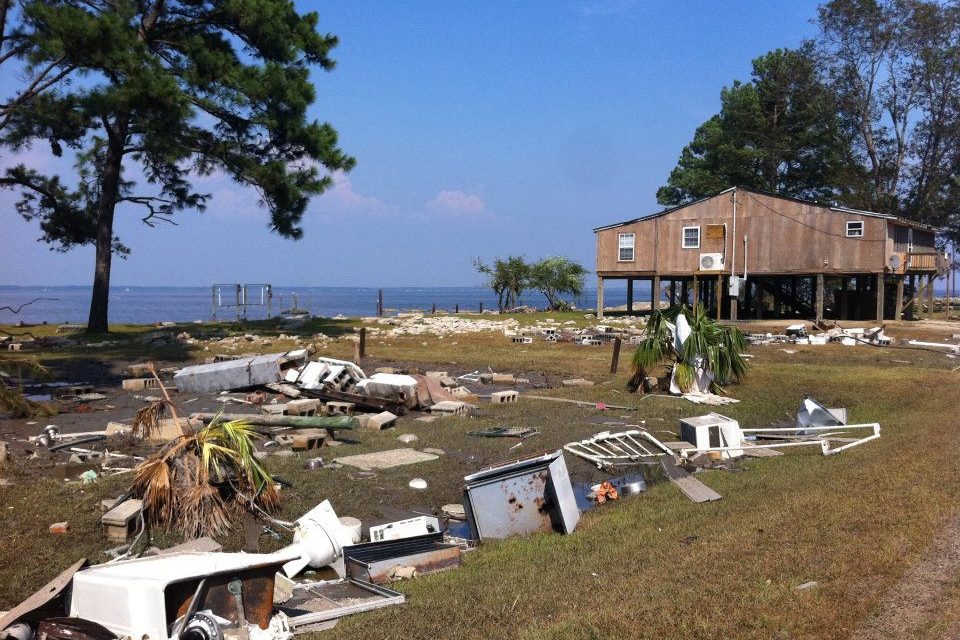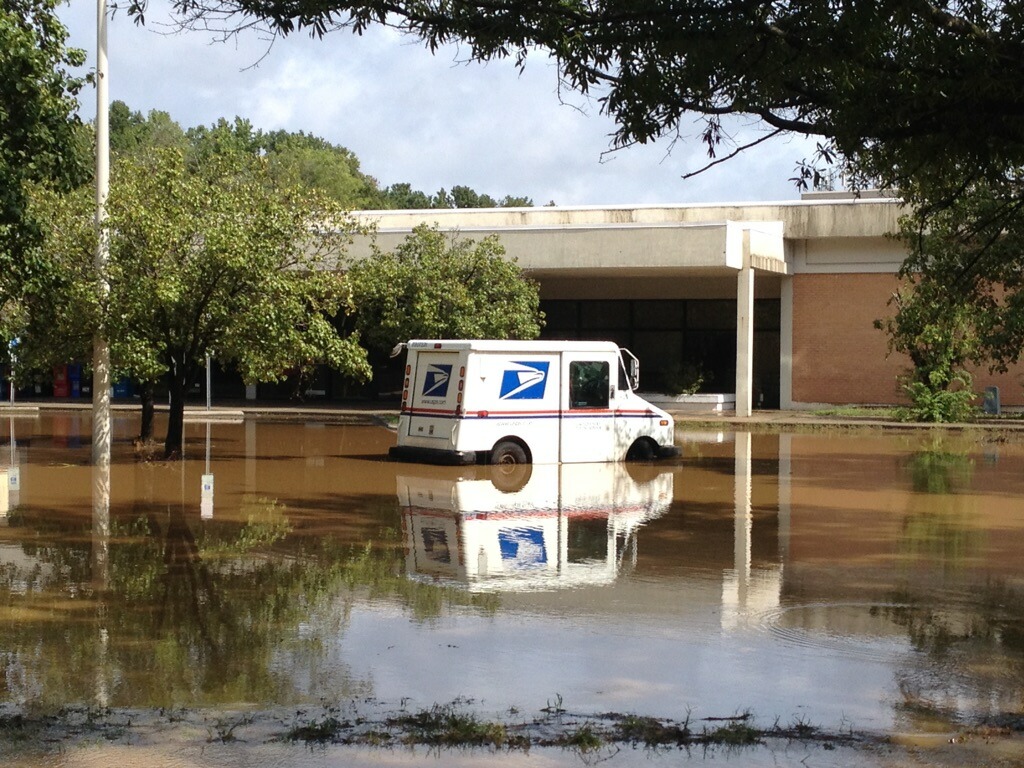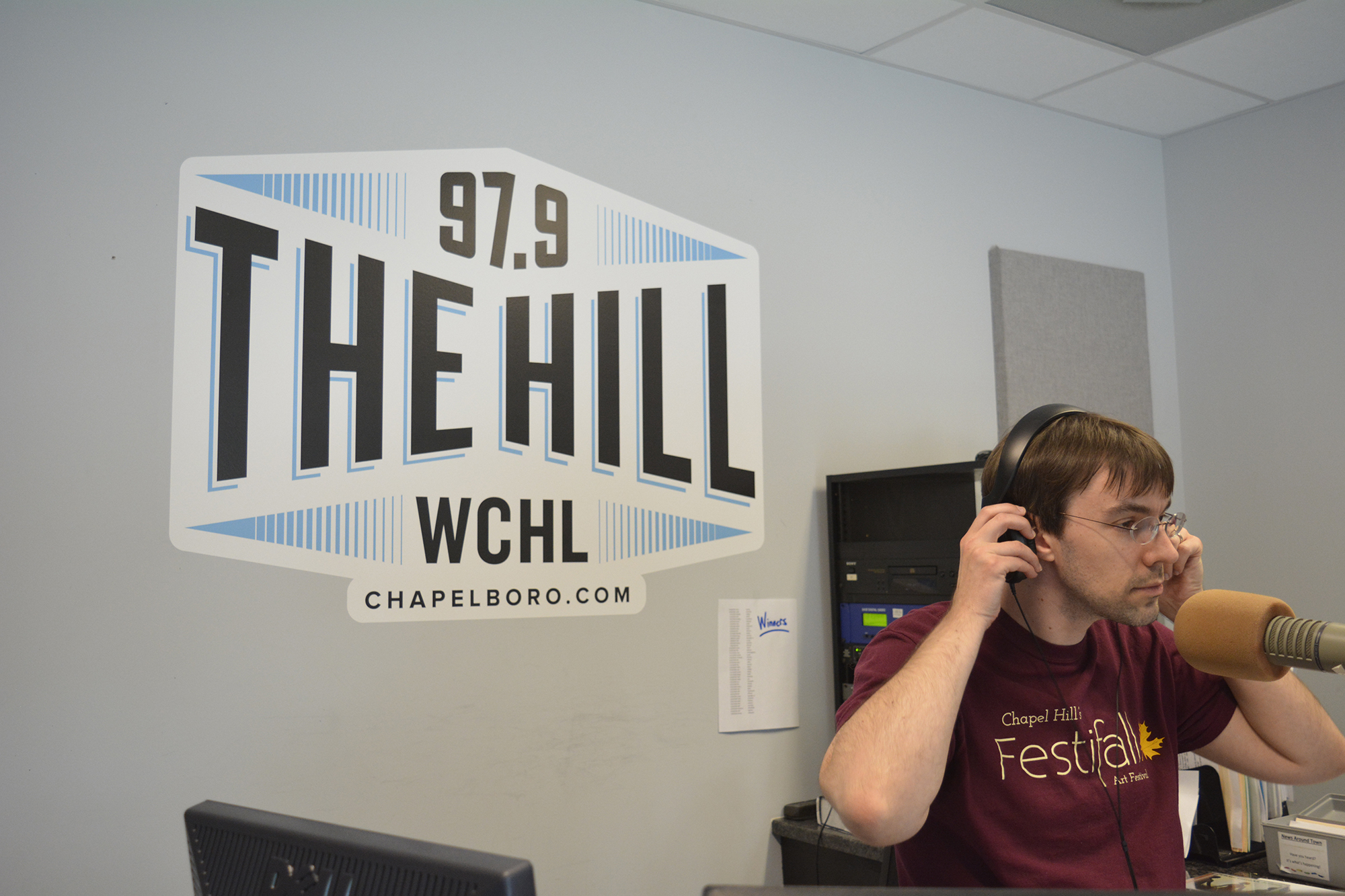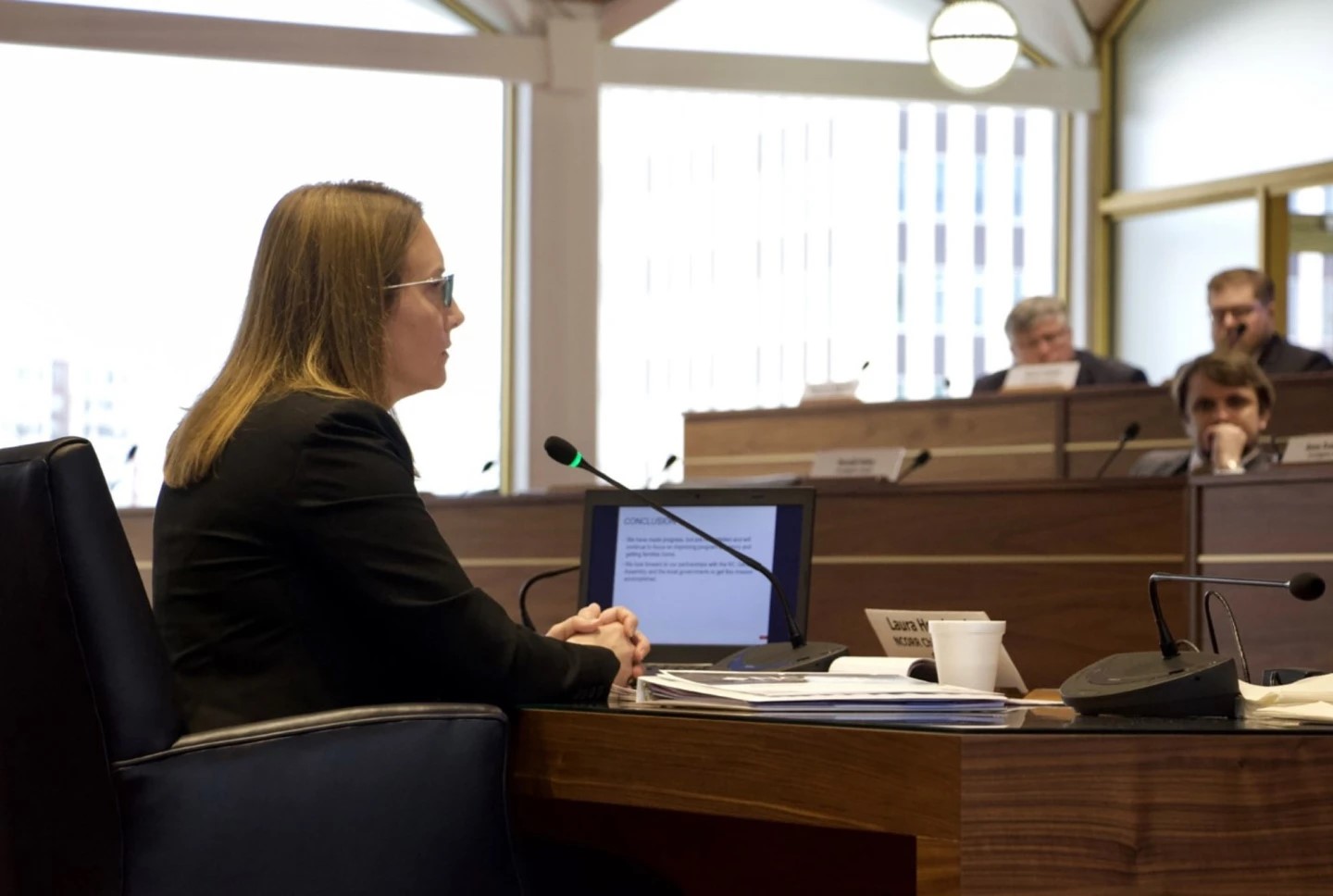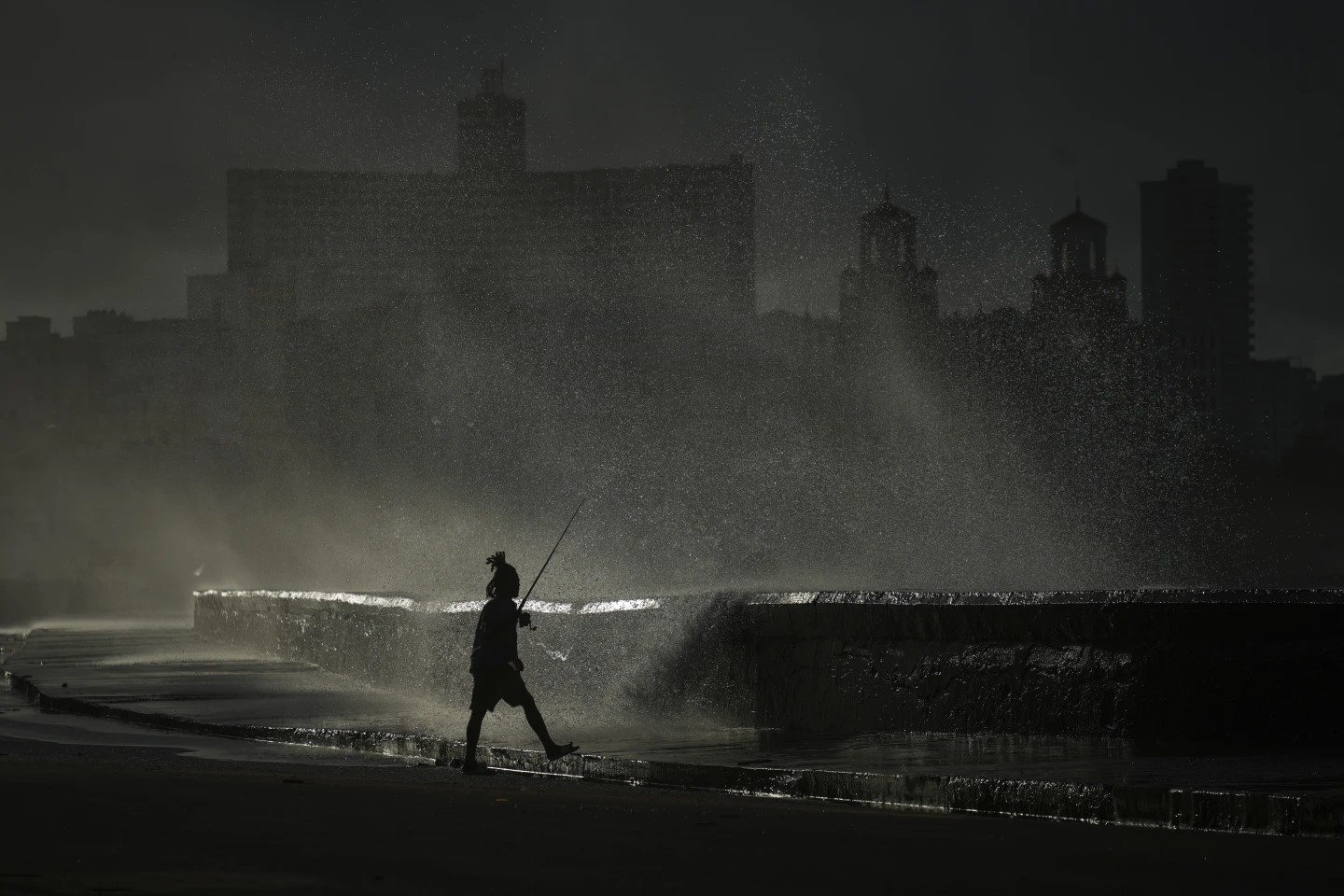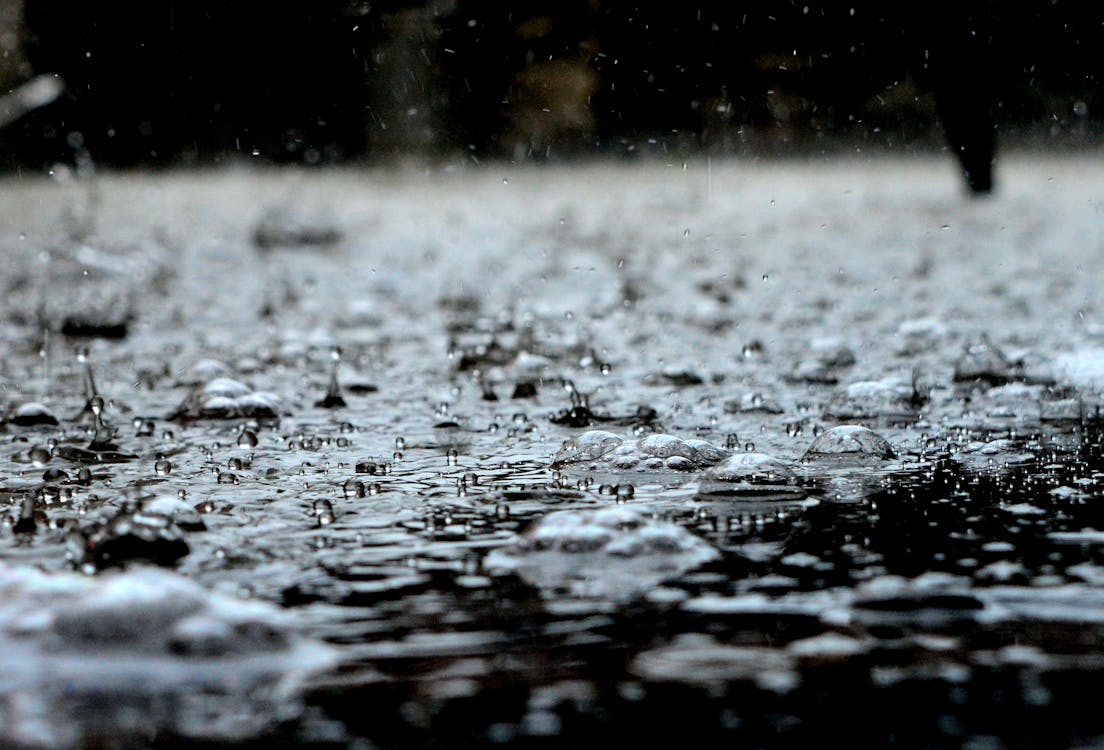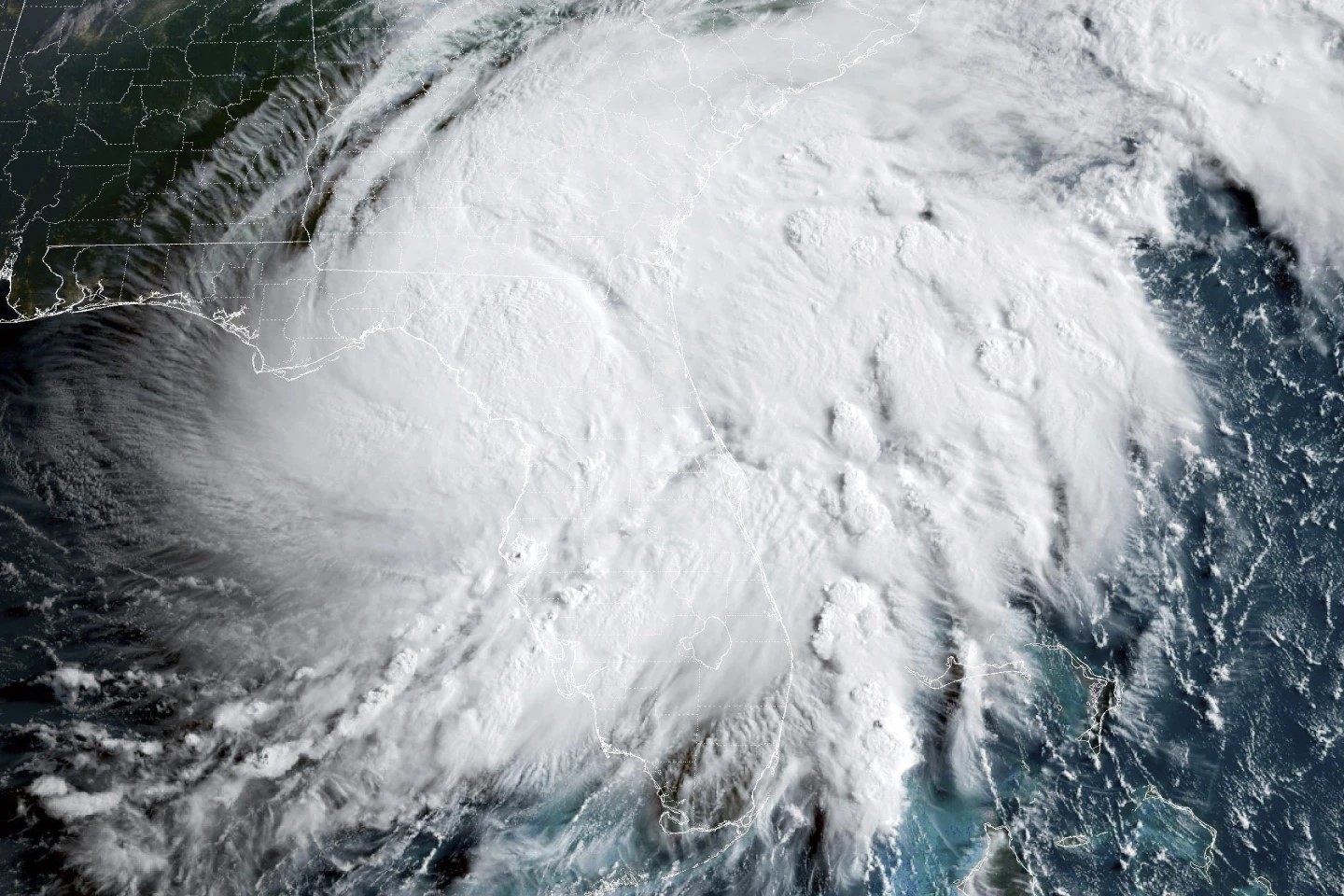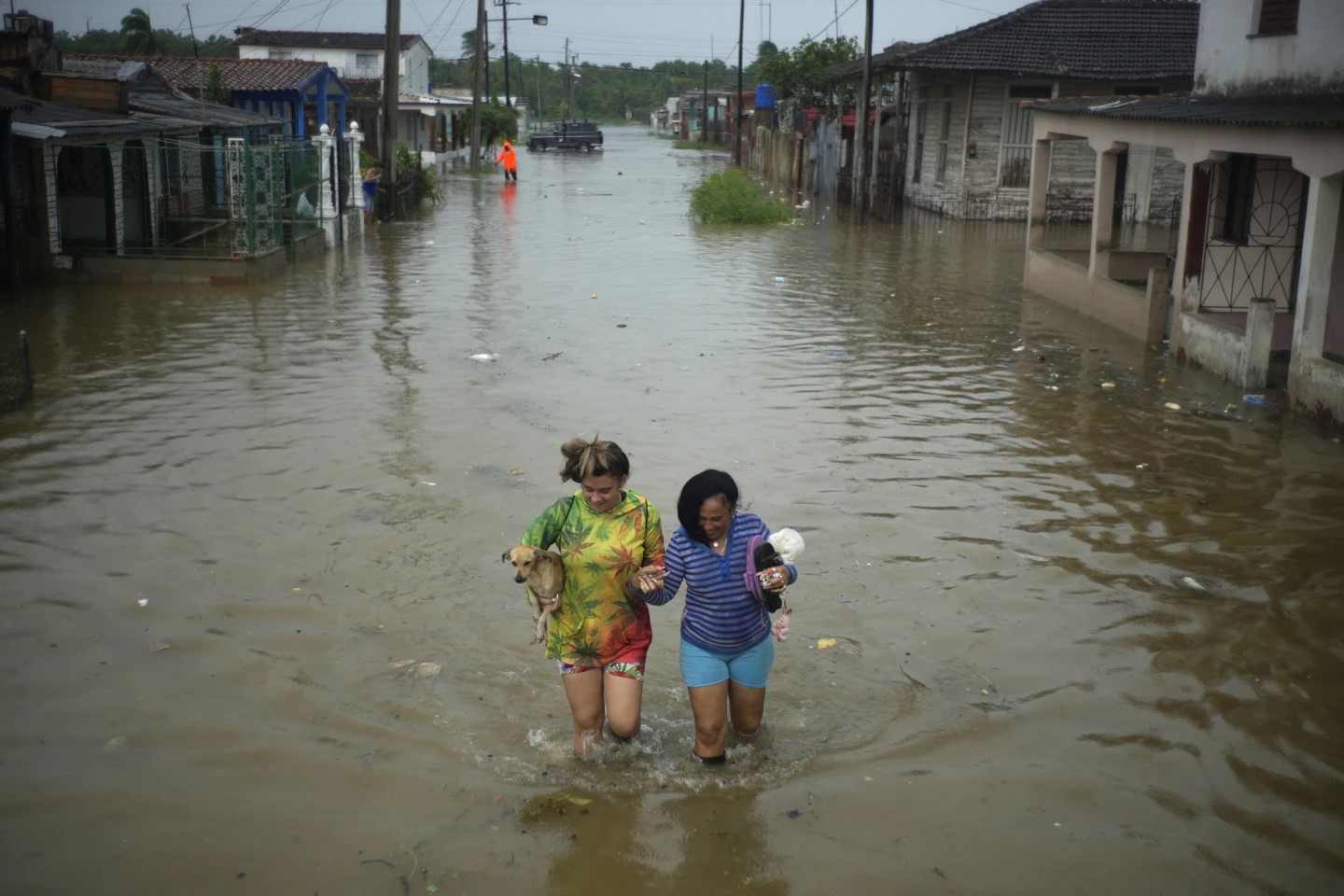Hurricanes, for better for worse (usually for worse), are an inherent part of growing up in eastern North Carolina.
Sometimes it means several days out of school that feels like an unexpected vacation, and sometimes it means going through all your toys and clothes, trying to find anything worth salvaging as you see pieces of your house scattered around the yard.
Yet we still come back to the water. We rebuild our homes and we rebuild our hearts (which usually take longer), and we keep coming back. Because we know there is no place like it in the whole world and it’s not the house that makes it our home.
Hurricane Florence scares me for my family and friends down on the coast. Not only that, but here in the Triangle, we may get it pretty bad — although it’s turning south as I write this. This storm is reminiscent of a few hurricanes from my past whose names still strike fear in the hearts of North Carolinians.
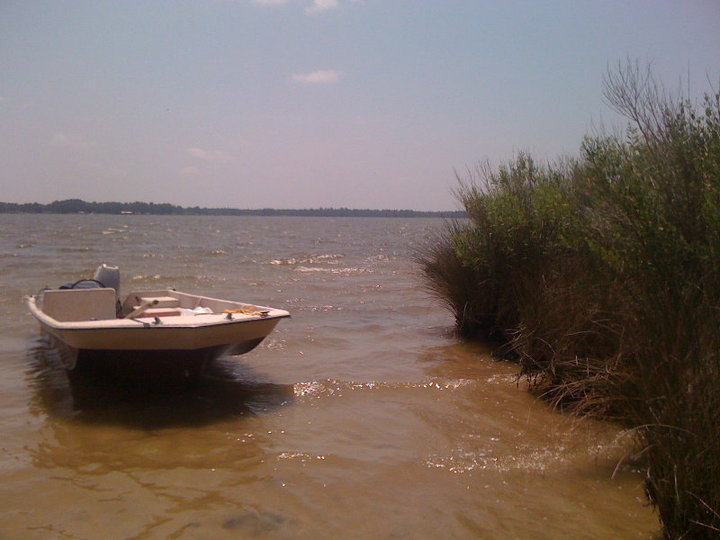
The 1981 Mitchell tri-hull runabout – Rain’s father’s boat.
At a certain point on the Pamlico River, there’s an intersection of the Pungo River, South Creek, and the Pamlico Sound. On two different sides of the river, I experienced life and loss that molded me into the man I am today. That journey was connected and navigated by a 1981 Mitchell tri-hull runabout with a 35 mph outboard motor — my father’s boat.
It was there before me and after him.
The late 90’s was the heyday for catastrophic hurricanes in North Carolina. I clearly remember 1996, the year of Bertha and Fran. Those were both bad storms, and I spent them playing with friends, because that’s how normal hurricanes were to us and you’ve never really lived until you were running away from a falling tree that’s headed straight for you. After that lesson, I stayed inside for the next storm and recorded myself beat-boxing and my best friend Brantley rapping while my mom read a book under candlelight. I still have that cassette tape somewhere.
But in 1999, the fun was over when Floyd arrived.
We were out of school for two weeks and the flooding was devastating. I remember President Clinton even visited Greenville, Princeville and Tarboro where flooding had been as high as power lines. Many of my friends had to be pulled out of the second stories of their homes by helicopters. It was a disaster like we’d never seen.
My mom’s house, though close to the water, was fine and so was my dad’s. But in Hyde County, we had a river cottage that would never recover. Calling it a “cottage” is a little bit of an embellishment. It was a trailer. But it was on the water and provided us with lifelong memories of skiing for the first time, catching flounder and blue crabs, and getting stung by jellyfish — all in that little brown and white boat with the orange stripes.
Our boat was modest and so was our cottage, but it made our lives experience a little luxury.
After my mom and dad separated in 1998, we still tried to visit as often as we could, but it was never the same. Our family dynamic had shifted. Beau was living in Chapel Hill, I was in the middle of high school, and my parents were trying to navigate their new lives.
When Floyd hit, it wiped out the whole community of Makleyville, where our trailer was, and it put the finishing blow on what once was our nuclear family.
My dad slipped into a bit of a depression and then later became sick, and we never finished cleaning up the carnage until after he died in 2007.
The old boat just sat in his driveway under our basketball goal.
During that time, my mom (who had moved on with her life) bought a new cottage on the south side of the Pamlico River in a community called Hickory Point, four miles across the water from where our trailer once stood.
She had started making some money in real estate and always wanted to get that vibe of a river cottage back that we once had. This was a real cottage. We fell in love immediately and spent as much time as we could down there. We’d bring down friends from Chapel Hill and have birthday parties and get stung by jellyfish in our new boat.
I could tell it made my dad sad, but I think part of him was happy for us, too.
When he passed away, I cleaned up Hyde County (my mom later sold the property) and took the old boat I’d grown up with back to Hickory Point. I had sank the new boat earlier that year, so in a way this was like Dad still having a role in our lives at the river.
The old boat meant more to me, anyway.
Beau and I used it to fish for flounder, set crab pots, and explore the surrounding creeks like we were kids again.
“The Point,” as we called it, had become our safe haven. Some friends even said it was their favorite place in the world. There was no cell service, no internet, and only three channels of basic television. It was more than a river cottage, it was a break from everything. It was a place to be at peace with nature and more importantly, with ourselves. Sometimes you could spend a whole day just sitting in a chair staring out at the river.
It became our sanctuary.
Then, in August of 2011, Hurricane Irene came.
She was just a Category One, but she was big and slow moving. Even the full time residents of Hickory Point were forced to evacuate. She sat there churning for over 10 hours and we were unable to know if The Point would make it.
It took my mom several days after the storm to get down there because of trees in the road.
I remember her phone call like it was yesterday.
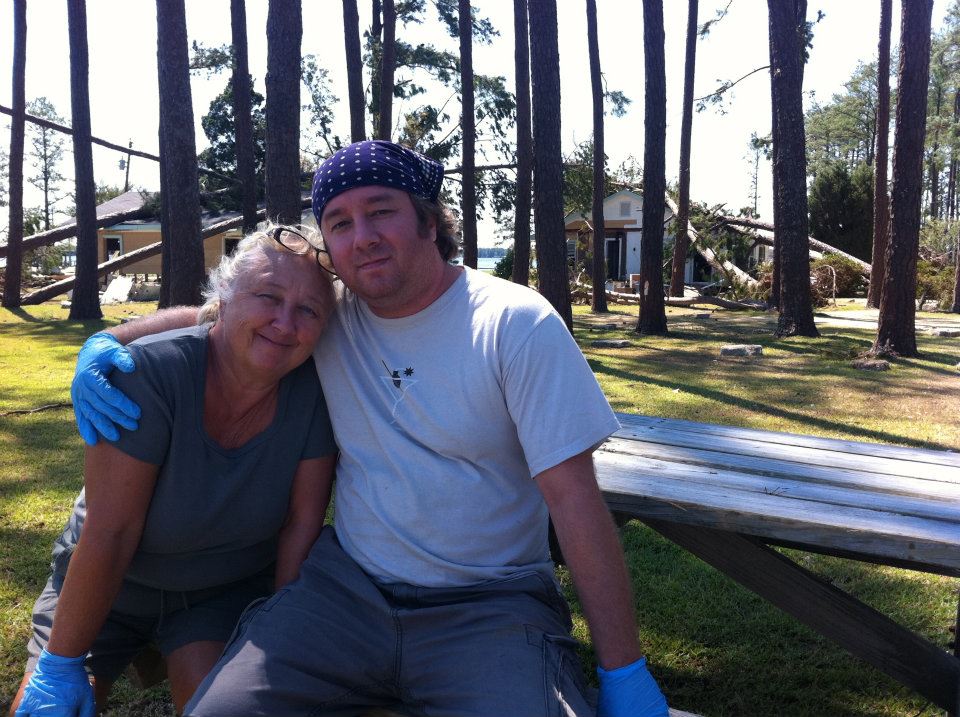
Rain and his family clean up after Hurricane Irene.
“Oh baby, it’s gone. It’s completely gone.” she said.
“What do you mean, gone?” I asked.
When I drove down the next day, I found out. Smaller cottages and trailers that stood on Highway 306 were no longer standing. There was a boat in a tree. Limbs, couches, canoes, and pieces of piers were scattered all over the road.
Then I saw it. Our house had skipped over the ditch and was sitting in the road. Three pine trees had fallen on it and knocked it off its foundation and the water did the rest. The inside of the house looked like a big washing machine had thrown everything around for 10 hours. The refrigerator was on the other side of the house, but a little glass starfish still sat on the mantle.
It was an eerie little detail.
My mom, brother, and I spent the day cleaning up and salvaging what we could. It wasn’t much. Fish nets had been tangled up in tools from the garage, our riding mower was upside down, and I found the boat trailer twisted around a tree with no boat on it. The boat was nowhere in sight.
If I could have felt any emotion, I would have cried.
The one piece of my dad left in my life had been washed away.
I sat down on the bank of the river at the end of the day. The sun was setting and it cast a pink glow over the Pungo River four miles away. I wondered if somehow the boat had found its way back home.
My mom took it really badly. She, like all of us, more than loved that house. I think somewhere in her head it was a sign of her independence, or a reminder that she could provide the life we always wanted on her own. And now it was gone, this thing she’d worked so hard for. She fought FEMA and insurance companies for a year and was exhausted from it.
The next summer for her birthday, I bought a picture frame and put a picture in it of our two Adirondack chairs — now gone like everything else — facing the river from the point-of-view of the house that once stood.
On the bottom, we simply wrote: “It’s not the house that makes it The Point.”
She broke into tears.
Hurricanes come and go. Houses come and go. Boats come and go.
So no matter where you are this week, take care of what matters most – the people you love. And if you lose some of the things you love, like my Dad’s old boat, just remember that they aren’t the people.
It’s not the “things” that make our life. It’s the experiences and it’s the memories.
And those can never be taken away.
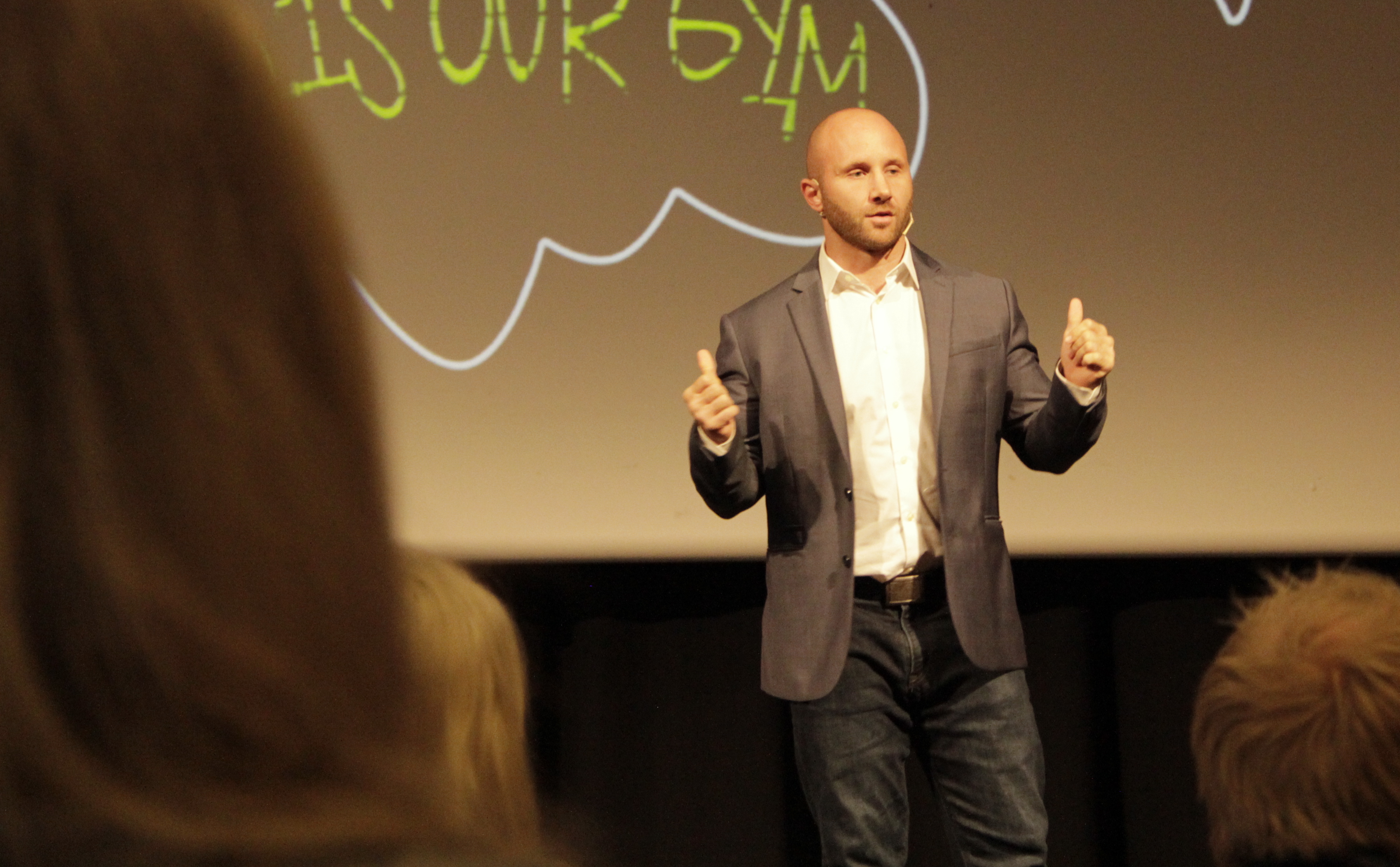
Picture via Rain Bennett
Rain Bennett is a two time Emmy-nominated filmmaker, fitness professional, public speaker, and writer. His mission is simple: to help people realize that they too can be great, no matter where they come from or what they start with. It just takes passion, persistence, and a plan.
Bennett directed and produced his first feature length documentary in true indie fashion by traveling the world with only a backpack and a Canon DSLR camera. That film, Raise Up: The World is Our Gym won “Best of the Fest” at the Hip Hop Film Festival NYC and received global distribution through Red Bull Media House. He’s been featured in publications like Men’s Health and Sports Business Global and is a regular contributor to Breaking Muscle. When he’s not making movies or training clients at Sync Studio in Durham, he’s hosting a new webseries called The Perfect Workout Show.

